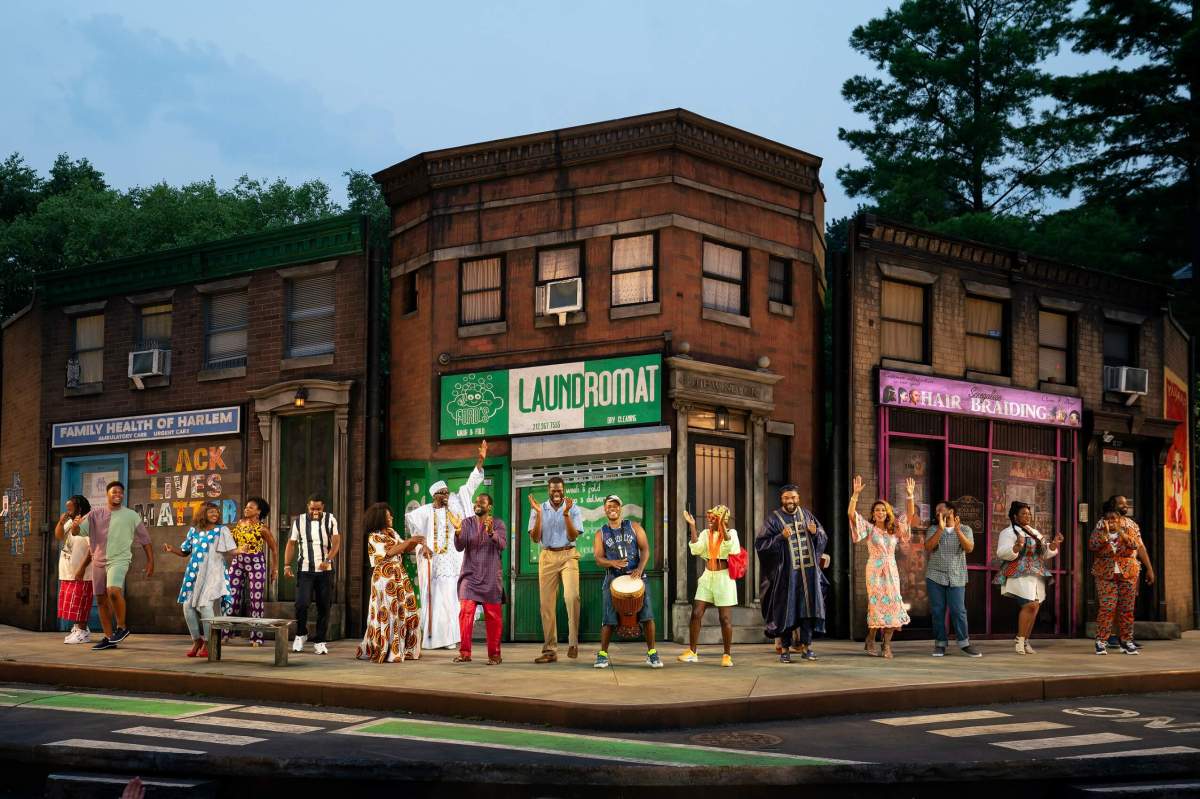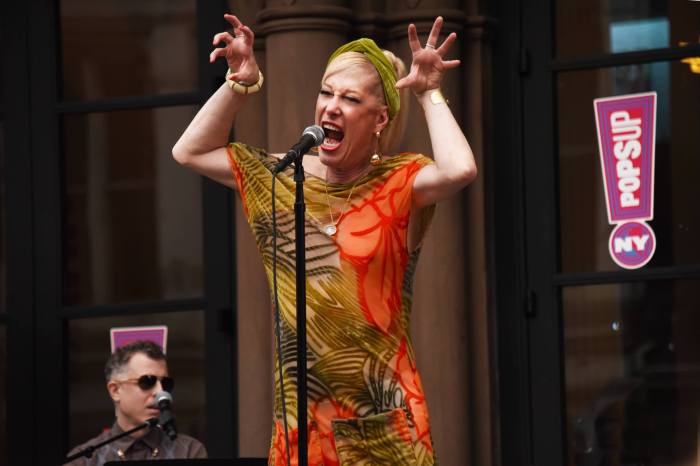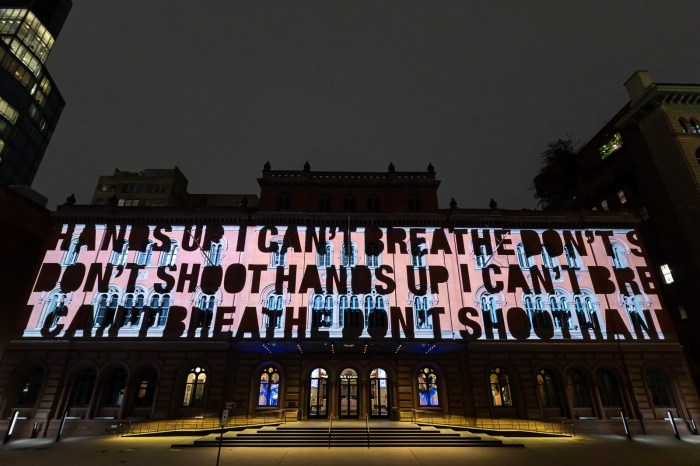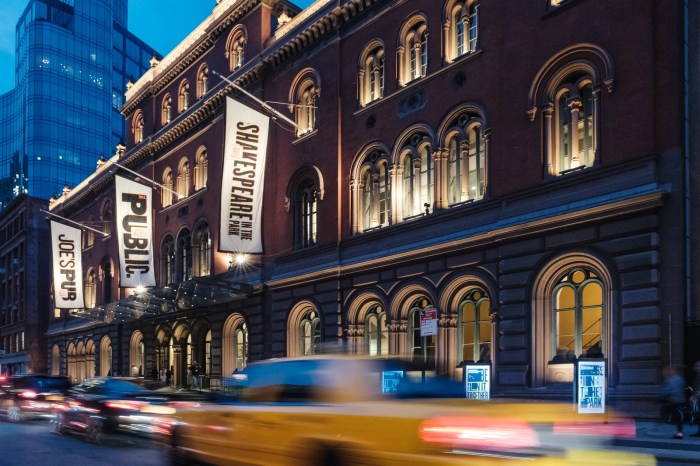One of the most unfortunate consequences of the theater shutdown was the loss of last summer’s entire Shakespeare in the Park season, making it the first time since 1962 in which the Public Theater did not present any classical theater for free in Central Park during the summer.
The 2020 season was slated to include free productions “Richard II” and “As You Like It,” which were reconceived as an audio play and documentary respectively and can still be viewed on the Public Theater’s website.
On the other hand, one of the most hopeful signs of the theater community’s ensuing comeback occurred when the Public Theater announced that Shakespeare in the Park would return this summer with “Merry Wives,” a fresh adaptation of Shakespeare’s domestic comedy “The Merry Wives of Windsor” by Ghanaian-American playwright Jocelyn Bioh (“School Girls; Or, the African Mean Girls Play”) set in contemporary Harlem with an all-Black cast.
The Public Theater had originally planned to limit attendance to just 25 percent of the Delacorte Theatre’s capacity in order to comply with social distancing requirements. But after the State loosened restrictions for performing arts venues, the capacity was increased to 80 percent, with full capacity sections for vaccinated theatergoers and physically-distanced sections for unvaccinated theatergoers.
Opening night of “Merry Wives” (which began previews last month and runs through Sept. 18) was unexpectedly delayed by two weeks after Jacob Ming-Trent (who plays the boisterous and shameless Falstaff) injured himself during a preview performance.
“The Merry Wives of Windsor” is one of Shakespeare’s least accomplished and least performed plays. Possibly the first spinoff in entertainment history, it plucks Falstaff (an unforgettable, extremely rich character in both parts of “Henry IV”) off the battlefield and into the Elizabethan suburbs, where he foolishly chases after two no-nonsense married women.
Bioh sticks closely to the play’s plotting, retaining not only its memorable bits of physical comedy (including when Falstaff hides in a laundry basket and is thrown into the river) but also the tedious subplot about multiple suitors wooing a young woman. At the same time, she revitalizes it with the South Harlem setting (in which the characters are reimagined as West African immigrants) and modern slang interspersed with the original text. She also seamlessly weaves in some same-sex coupling.
While it may not exactly offer the profound meditations of “Hamlet,” the 110-minute intermission-less production (directed by Saheem Ali) is a flashy, feel-good, accessible and all-inclusive affair, making it an ideal way to return to the theater following the stress, tedium and heartbreak of the pandemic. Falstaff even makes a point of commiserating with the audience over this in the midst of his shenanigans.
For info on securing free tickets via digital lottery, visit publictheater.org.



































